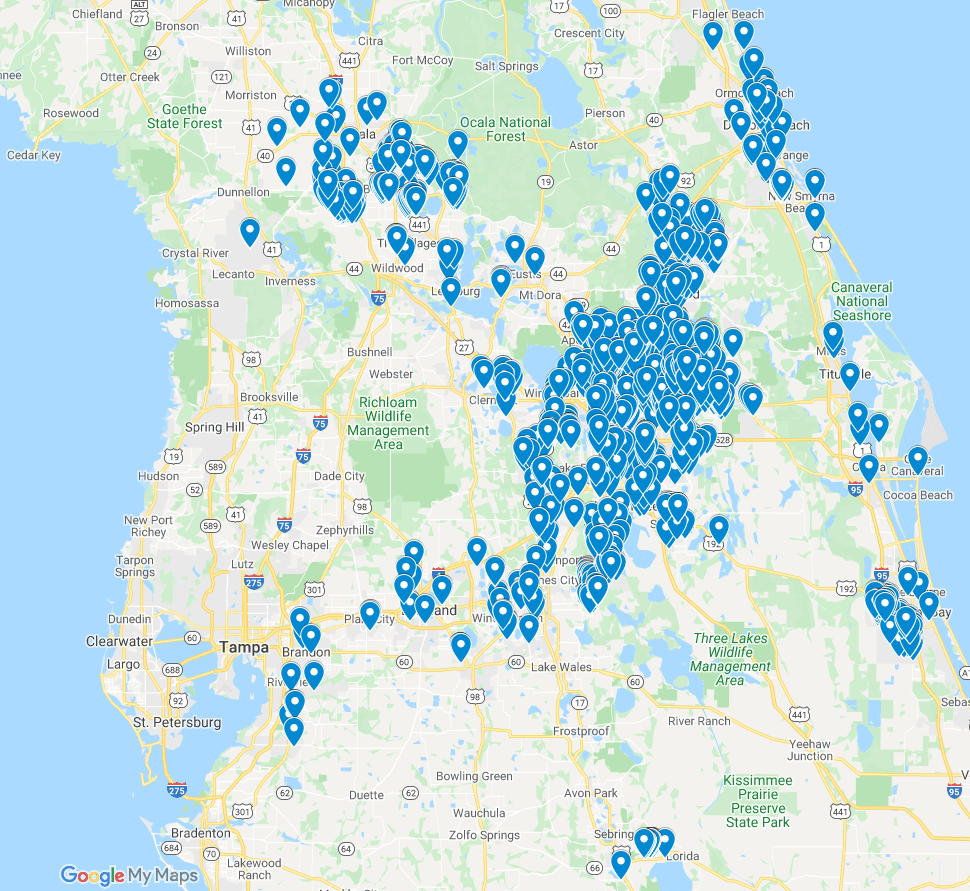
While rental management fees are important, they must be viewed in light of the following considerations:
- What other firms are charging
- The scope of services provided
- The quality of those services
The company you hire to manage your rental property will be stewarding one of your biggest assets; therefore, the last thing you want to do is make your decision based solely (or even primarily) on who charges the lowest fees.
The Truth about Rental Management Fees
A lower price may reflect either an acknowledgment that a property manager doesn’t provide top-tier service, or that they’re trying to gain business by undercutting the competition. The problem with the latter is that it leads to slim margins for the firm, which lowers the ceiling on the quantity and quality of service it can provide.
If a firm under-prices its services across the board, they may try to make up for it by overloading their managers with as many properties as they can (or can’t) handle.
The truth is that price is one of the last things you’ll want to consider. Not because it’s the least important factor, but because you should only think about price after you’ve determined if the company can provide high-quality services tailored to your needs. What good are low fees if the management company does a poor job?
Other common mistakes include:
- Failure to identify all the potential fees for property management
- Not making a true “apples-to-apples” comparison of costs between property management companies
A lower management fee can easily be wiped out by a lot of expensive back-end charges, and vice versa.
How Much Is a Property Management Company?
To answer this question, you’ll first need to have a deeper understanding of the following fees below, and how much a prospective property management firm charges for them.
Rental Management Fees
There’s a big difference between commercial vs. residential property management fees, but the average management fee ranges between 8%-12% in the state of Florida.
For a single-family home, you might expect to pay 10% in real estate management fees. This fee will vary based on the following:
- The number of properties you need managed
- The number of units in each property
- The location and condition of the property
- Which services are included in the overall fee
Other pricing models include flat fees, or a hybrid that sets both a percentage and a flat fee and allows you to pay whichever is less.
Note: You should find out if your rental management fees are billed to you or deducted directly from your owner’s account.
Vacancy Fee
Many management agencies don’t require this. If they do, pay close attention, because some companies charge a monthly vacancy fee ($50) that’s prorated when a tenant is landed.
Other companies expect to collect the full monthly property management fee even if there’s no rent coming in.
Make sure that the language in the contract specifies that management fees are to be paid out of “collected rent” or “rent collected,” as opposed to “scheduled rent” or “rent due.” Ensuring that this language is in place will also protect you from having to pay management fees in the event that a tenant stops paying rent.
Set-Up Fee
This fee is for the time invested in setting up a new account, and it usually ranges from $0-300. Find out if the fee is per unit or per property, and if it makes a difference whether or not the unit is occupied.
Leasing Fee
Leasing fees compensate the manager for the time, effort, and cost associated with getting you a new tenant. While this type of fee is common, some owners are opposed to paying it—preferring that it be padded into the management fee so there’s more incentive for the management company to find long-term tenants.
In truth, a good management company views the management fee (NOT the leasing fee) as the primary profit center. This is why leasing fees as a standalone service (meaning, without other property management services) are typically much higher (e.g., 75-100% of the first month’s rent).
A transparent fee structure is laid out in such a way that high tenant turnover hurts, rather than rewards, the rental management company. The only time this isn’t the case is when the fee is excessive or there are significant vacancy fees.
If you’re fortunate enough to have a long-term tenant, you’ll benefit by not having to pay a leasing commission that’s padded into the monthly management fee.
To help you decipher this, you’ll want to ask the following questions:
How much is the leasing fee? This ranges from 50% to 100% of the first month’s rent, but 50% is pretty standard. Instead of charging a percentage, some firms charge a flat fee, or a percentage of the gross amount for which the lease is written.
Does their leasing fee decrease or get waived if it takes them an unreasonably long time to find a tenant?
Is the leasing fee structured in a way that provides the firm incentive to bring in reliable tenants? This usually means a full-or-partial refund (sometimes pro-rated) in the event that the tenant is evicted or breaks their lease within 12 months of the original move-in date.
Some firms have a policy of only charging this fee once per 12 months per unit, which has the same effect.
Do they use leasing agents? If so, what will you have to pay them in the event that they find you a tenant?
Do they require exclusivity in advertising, or can you advertise the unit as well? Be sure to also ask If you find the tenant, will you still have to pay the fee?
Are there any restrictions or extra charges for showings (e.g., they only do x number of showings per week, not on weekends, etc.)?
Speaking of advertising and showings of your rental property, let’s review a few more considerations you’ll want to keep on your radar before hiring the right management company.
Advertising Fee
You can generate plenty of tenant leads using free resources like signs and Craigslist. But with vacancies, time is money. That means prolonging the search process to save a few advertising dollars is a bad idea.
This fee could be charged in addition to the leasing fee, so it’s important to ask who pays it, and what the typical fees are.
The better a property manager is at marketing, the less you’ll pay. If they have a good strategy and use modern syndication tools, this should be around $100 and not more than $200.
Note: The Realty Medics does not charge any additional advertising fees. The Leasing Fee includes all marketing and advertising expenses.
Lease Renewals
Some property managers charge this fee whenever they have to draw up the paperwork to renew a tenant’s lease. The fee typically ranges from $0-200. The process doesn’t require a lot of work, so a big fee should be a red flag.
You should ask if they require lease renewals, or if they allow tenants to go month-to-month after the initial term is up.
Reserve Fund Fee
These funds are used to pay day-to-day operating expenses, making sure that services are performed promptly and bills are paid in a timely manner. A reserve of $200-500 is normal for single-family properties.
Maintenance Fees
A key question for your property manager is, “Will you contact me with an estimate before performing repairs over a predefined amount? Is this negotiable?”
Their policy may be to notify you if an expense exceeds a higher figure, like $500-1,000, but you may want to ask if this can be set lower starting out (say, $100-$200) and then increased over time as you become more comfortable with the property management company’s judgment.
Additionally, if this notification is waived during “emergencies,” ask that they define what qualifies as an emergency.
Another key question to ask is, “Do you have your own maintenance/repair crew?” Companies that don’t offer this may portray it as an ethical hazard, since the company could overcharge. But as long as you confirm that the billing rate and process is reasonable, it shouldn’t be a problem.
If managed properly, an in-house crew is a benefit that can lead to cost savings and a more streamlined process.
Here are some additional questions to ask regarding maintenance:
- For larger remodeling/upgrade projects, do you act as the general contractor, overseeing the work that’s done? Is there a fee for this?
- Do you get at least three independent bids for larger ($500+) projects?
- Do you belong to a network to get better repair rates on the work you outsource?
- Do you charge a “mark-up fee”?
Eviction Fee
This is a fee for serving notices to tenants, dealing with attorneys, court appearances, evictions, etc. Hourly rates are typically $25-50, while a flat fee for the whole eviction process is usually $500-600 plus court costs.
Find out if the property manager typically uses an attorney for evictions, and what their billing rate is.
Unpaid Invoice Fee
This is a small service charge (typically 1.5%) that’s added each month to all unpaid invoices that are past due.
Bill Payment Fee
This is a fee for making owner payments, such as
- Mortgage
- Insurance
- Homeowners association dues
- Etc.
Some management firms don’t charge a separate fee, while others don’t even provide this service.
Sales Commission If Property Is Sold
Some management firms require an exclusive arrangement to broker your properties. If this is their policy, find out the brokerage rate and make sure there’s a limited term that will allow you to re-list with another firm if the property doesn’t sell within a reasonable period of time.
Also, if the firm requires it, find out how much the sales commission would be in the event that a tenant wants to purchase the property they’re occupying. This is typically 2.5%-3%, but we’ve seen higher fees. Always make sure to check the contract.
Other Income
Find out if the property manager will be keeping any portion of the following sources of income:
- Late fees
- Returned check fees
- Pet deposits
- Lease violation fees
- Interest on security deposits (may not be applicable depending on state laws) and owner funds held by manager
- Income from laundry and vending machines
Extra Duties Fee
Some contracts contain a list of extra services not included in the contract—along with the billing rate in the event that the owner requests that any of them be performed. Check to see if this clause exists, what services are listed and what the billing rate is.
Find a Rental Management Company Near You
We hope this breakdown of real estate management fees helps you in your search! If you’d like to learn more about how The Realty Medics can help you buy, sell, or manage your property, contact us today! As the nation’s leaders in Rocket Science Renting, our mission is to keep your life simple by handling all the complexities of property management on your behalf.
* * *
The Realty Medics are the nation’s leaders in “Rocket Science Renting”: Rocket Science Renting is about keeping your life simple by letting someone else handle the complex work of property management for you. It’s knowing that your property is running smoothly, with no hiccups or glitches. It’s hyper-responsive customer service that gives you property management peace of mind. It’s advanced technology that could only be designed by a former NASA engineer like our owner, Ben Sencenbaugh. And it’s knowing that you’re always getting maximum value and ROI for your investment.
Orlando Property Management Hiring Guide
BASICS OF PROPERTY MANAGEMENT
- 11 Questions for Determining if You Need a Property Management Firm
- Property Management Services: A Complete List
- What Are the Benefits of Using a Property Management Company?
WHAT TO LOOK FOR IN A FLORIDA PROPERTY MANAGEMENT COMPANY
- Property Management Fees, Part I
- Property Management Fees, Part II
- Handling Tenant and Owner Funds
- Setting and Collecting Rent
- Property Maintenance and Repairs
- Property Inspections
- Tenant Marketing and Retention
- Tenant Screening
- Examining the Organization: Background, Qualifications, Portfolio
- Examining the Organization: Size, Staff, Customer Service
WHAT TO LOOK FOR IN A PROPERTY MANAGEMENT CONTRACT
Let us handle the rocket science of renting for you!
CONTACT US
The Realty Medics
10027 University Blvd
Orlando, FL 32817
Phone: (321) 947-7653
FAX: (407) 965-3312
The Realty Medics are the nation’s leaders in “Rocket Science Renting”: Rocket Science Renting is about keeping your life simple by letting someone else handle the complex work of property management for you. It’s knowing that your property is running smoothly, with no hiccups or glitches. It’s hyper-responsive customer service that gives you property management peace of mind. It’s advanced technology that could only be designed by a former NASA engineer like our owner, Ben Sencenbaugh. And it’s knowing that you’re always getting maximum value and ROI for your investment.
More from the guide
Areas We Serve in Florida
We’re happy to serve many of the surrounding areas here in Central Florida. Below are the current cities and locations that we operate in. If you don’t see your area listed, don’t hesitate to reach out to us and we’ll see if we can work together.










Ready to Get Started?
Please fill out the form above and somebody from our team will be in contact with you as soon as possible. We’d be happy to discuss your needs to know how to best serve you.
















